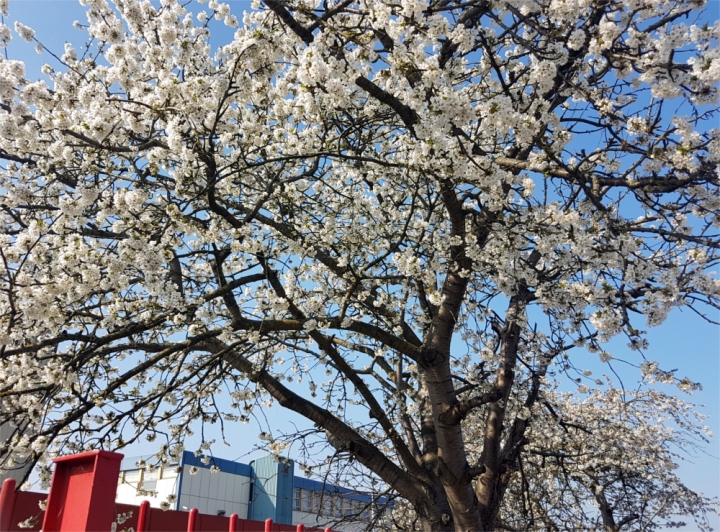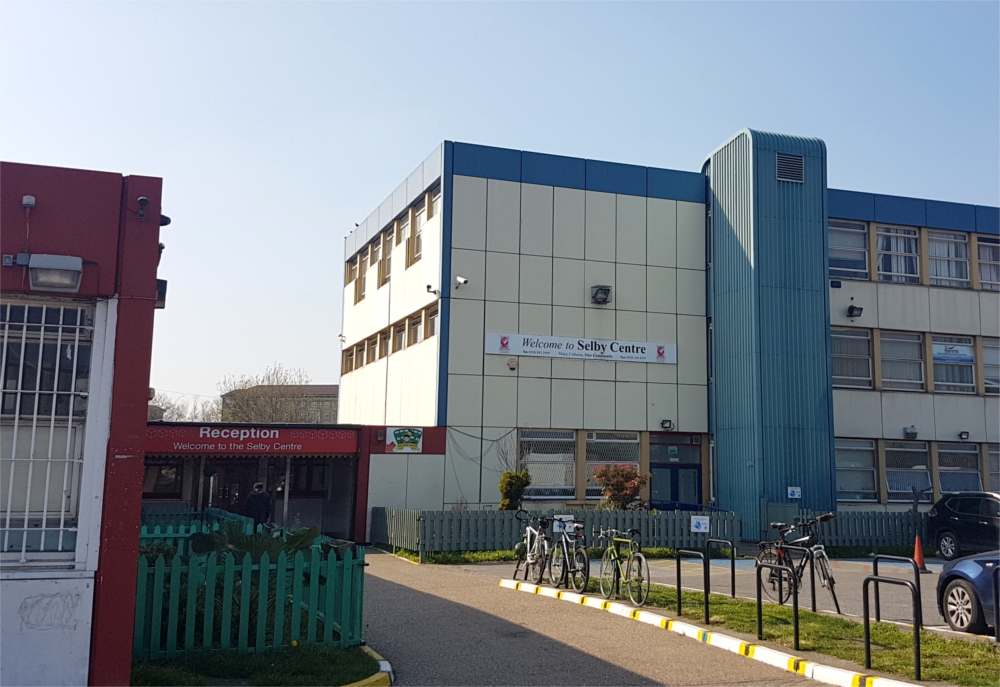Towards the end of last year, DT caught up with Moussa Amine Sylla, community organiser, trainer, project coordinator and youth worker, based at Selby Centre, near White Hart Lane in north Tottenham.
Selby Centre, run by Selby Trust, is a social action hub, home to a variety of social enterprises and charities, and a wide range of activities are available to the community. They also supply affordable spaces for the BAME community. ‘We try to be the glue to connect all the communities in one place,’ Moussa says.
‘One of our aims is community development and we are partnered with Haringey Council to develop a platform where conversations are held around how to integrate migrants and provide a voice for those not heard. We also try to help push climate change and environmental issues, looking at things like organic food and recycling building materials and office furniture.’
‘We look at community safety and pledge to help young people who are disconnected and disenfranchised to reintegrate into the community, working with London Probation to host community payback and services for young people, who have offended, and have a number of hours to give back to the community.’
Moussa first started working at Selby Centre as a volunteer in 2013. ‘I was working on social media and blog development for a small programme called Wood Works Wonders. The aim was to set up a social enterprise to collect wood which would normally go to landfill and turn it into something new, for example, a raised bed, picnic table, skirting or bird houses, and in the process reskill young people, at risk of offending, into carpentry.’
‘In 2014, I started my first contract with Selby Trust which is around enterprising in a creative environment and network building. I quickly realised that a lot of people in the community are creative – a lot of people do art – but they don’t know how to turn it into a business or a job. I was exploring how we can develop that. It’s about understanding people, bringing them together, what do they need, can they translate the idea into a proper business? I started engaging with other organisations, including BTEC and Haringey Council, to provide space and courses for those people. The scheme is completely open to people of all ages, that said, we have some young people who are incredibly talented. We had a young man who created a comic book at the age of nine.’
‘From there, the opportunity to be trained as a community organiser came along when Selby Centre responded to a contract from a membership organisation Locality, made up of 1,200 community led organisations. The community need to have more power in terms of how public services are run. The idea is that training 500 people, including myself, would encourage the community to take it on and have more control. I deliver training in community organising and nurture social action. If you have an idea, you can come here and look at how we can implement it within a social context.’
As part of Moussa’s work, he mapped out the community and their opinions on the council and public services by speaking to a large number of locals. ‘I learnt that the majority of people don’t like the council as it is and some view a councillor as a threat.’ Using the research, Moussa identified key gaps or needs and designed a programme based on this to support people of all ages in the community.
‘We try to understand, from their point of view, what is lacking and look at ways they can be part of the solution in order to tackle their own concerns. We started bringing people together who have the same passion or concerns. Passion is a strong motivator which starts pushing you into action. For example, people might have a problem around a lack of sports space and physical activities. Why don’t we all sit down with a cup of tea and see how we can work together… How can we collectively do things for ourselves?’ Moussa now runs community organising workshops which comprise of three one-day training sessions.
‘We’ve supported a lot of initiatives, such as Spoken,’ Moussa says. A regular event, organised by Haylee Venus, where young people can come together in a positive environment and talk about issues and challenges they face in everyday life. They have seen a range of spoken word, poetry and music performances.

Another achievement Moussa talks about is when he took a group of 14 young people under 30 to the European Parliament last summer. ‘The gathering was called EYE (European Youth Event) which is a group of young people coming together and discussing burning questions that they might face: migrants, unemployment, innovation of stagnation, meeting your MP. The young people got a lot out of it.’
‘One of the challenges working with young people is getting them to understand “we can make a change.” People believe only in what they see. If you tell them “listen you are able to do XYZ”, they don’t feel they have the capacity. Visiting places like the European Parliament is important as they get to feel a sense of empowerment. Taking young people who have maybe never been away before to meet people from different cultures, for example, Italian, Spanish and Portuguese, was a really great experience. From an early age, we should encourage children to share different cultures and encourage every person to go elsewhere and meet other people. That’s the only way you’ll understand that there is nothing wrong with being different.’
‘It’s necessary to be part of the change, and part of the decisions, otherwise we give our power away… Don’t turn a blind eye, don’t think you can’t be the change. We can help you.’
Moussa tells DT about his work to support women from BAME backgrounds to go back to work. ‘We look at training, upskilling, strategy, actions and social change.’ He has worked with some Somali and Kurdish women, who traditionally would have stayed at home and provided for the children whilst the husband would bring in the main income. Moussa explains that the women have a wide range of skills and experience, and are often highly qualified but their qualifications aren’t recognised in the UK. We explore the women’s passions and how they could potentially turn that into something that could earn them a living.
Originally from France, Moussa lives in Hackney and has been working for the community in Tottenham for over six years. ‘What happened in Hackney 10 years ago is happening in Tottenham now and I feel like I can relate. Over the last few years, I’ve built so many friendships and relationships with local businesses and cafes.’
We discuss the redevelopment and regeneration plans for Tottenham and how it might impact the community – including the now cancelled HDV (Haringey Development Vehicle) plans where Haringey Council had intended to sell off £1.2billion worth of land and go into a 50/50 partnership with a developer.
We talk about why it’s important to support community projects in Tottenham. Moussa explains, ‘Two massive riots started here and the most recent one went national. Historically Tottenham is a socially fractured area. The response from the local authority has been really poor or the wrong approach has been taken. Tottenham is the home of many asylum seekers and immigrants and there is no policy in terms of integrating those communities to have a better social cohesion and a sense of belonging. The fact that Selby Centre exists is helping to address those issues. At times, we’ve had some challenging circumstances to deal with, but without us those repercussions will be in the street and could potentially result in more violence.’
We can’t help but ask Moussa’s views on the recent rise in youth violence in the area and across the UK. ‘Early prevention is key. Looking at how we can we prevent young people, who are marginalised, falling into the trap of gangs and crime… Quite often the school system is where aggression and violence starts… you get bullied so you end up in a group to protect yourself.’
‘Often they have the mentality of “I want to be the boss of myself.” So we started to engage with young people who had an entrepreneurial mindset. Keep your hustling mentality and what are you good at? What are you passionate about? Think about how you sell your weed and, using the same mindset, sell your music. You can change the mindset by changing what they’re selling.’

We speak about the shooting of a 17 year old girl, Tanesha, in Northumberland Park last April. This was traumatic and impacted a lot of the young people in the area. Moussa outlines what he believes to be some of the contributing factors to a rise in youth violence in general.
‘A lot of the disagreements start on social media, they start beefing each other [arguing] and when they see each other outside, they start shooting each other. Almost half of the young people carry an arm for protection. If you set yourself up with an arm, chances are you’re going to use it. There has also been a reduction in police presence. When there’s a lot of police they are able to protect you. The young people don’t feel protected.’
‘Previously, when young people had problems they were able to hide themselves in youth clubs and places they feel safe, but with the current closures of youth clubs and spaces, they end up in the street with no security or support. It’s also looking at why the gangs, especially those who run them, have so much power and how easily they are able to influence young people.’
Moussa says it’s important to provide more safe spaces for young people to feel comfortable in and more money needs to be spent to make this happen.
Later we continue discussing Spoken. Moussa explains that the idea was started by a discussion with Haylee Venus, she said: ‘”what can we do? How can we let young people express themselves? If you have a pain, instead of taking a knife or gun and shooting or stabbing someone, sometimes just by putting it out, offloading the anger, can help a lot.”‘ She explained that it’s important to give young people the opportunity to meet others with similar experiences.
‘We thought, “If we have a platform like this we can probably help them to engage, start thinking collaboratively and really think about the way they work.” We’ve got artists who attend who have passed through violence and want to convey the message to inspire other young people. We can talk about things informally – without too many boundaries – it’s one of the best ways for them to develop themselves.’ They also have plans to collaborate with Tottenham Textiles in the future.
Contact Moussa: 0208 885 5499 or Moussa.amine@selbytrust.co.uk

